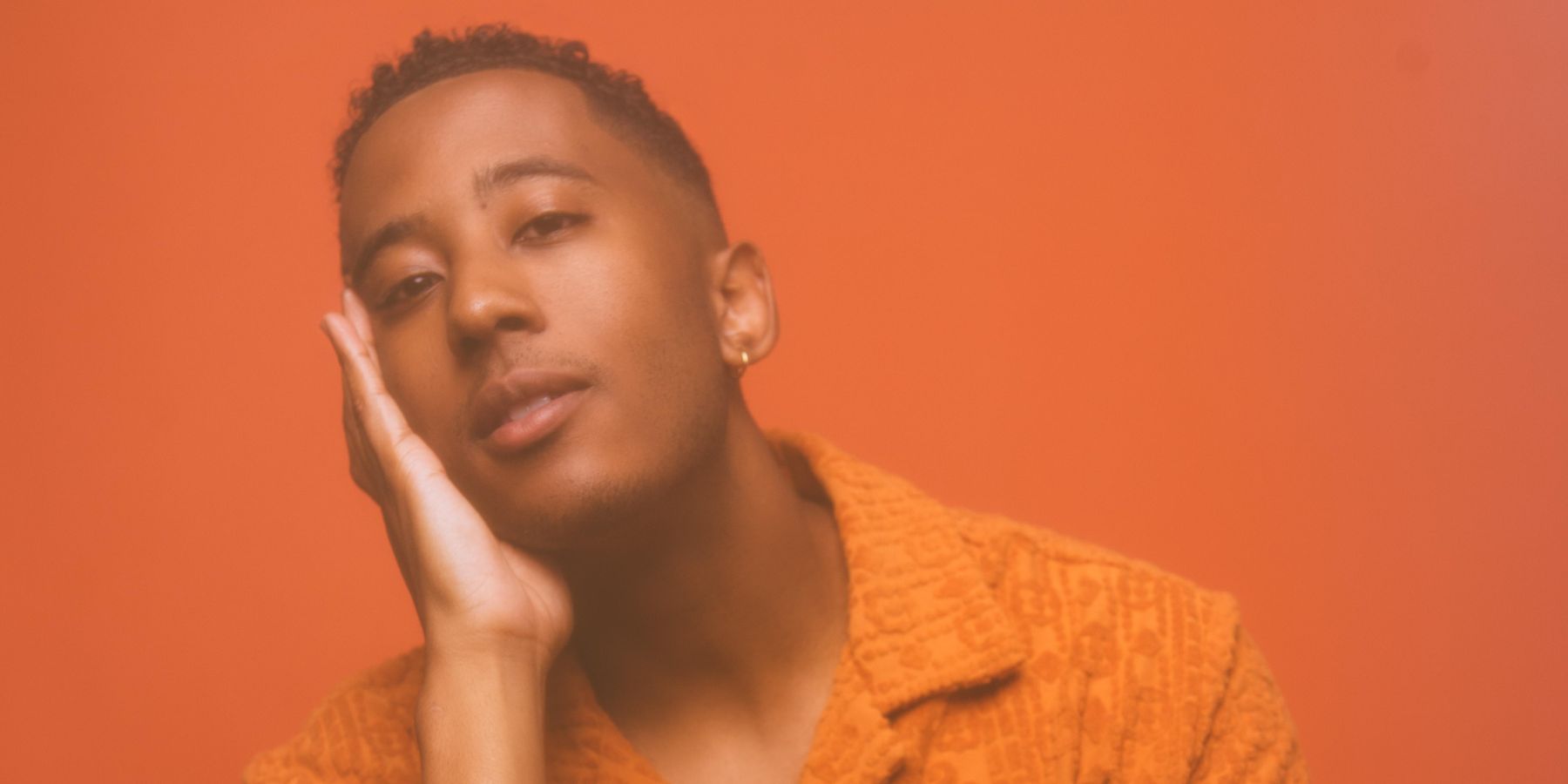
Making jazz-R&B for the next generation, Braxton Cook uses his formal Juilliard training to bring about positive change in the world.
The award-winning Los Angeles artist’s new five-song EP, Black Mona Lisa, not only reflects on his own experiences as a husband and new father, but turns the lens outward to spotlight Black love at large with powerful statements about social justice and police brutality mixed in.
Having previously worked with acts like Rihanna, Solange and Jon Batiste, Cook’s music and message is suited to spread far and wide — inviting new, younger listeners to experience a storied genre often pushed to the fringes of contemporary pop culture.
Below, the saxophonist, composer, and singer talks PAPER through Black Mona Lisa, track-by-track. You can see him live on tour in October alongside friend and collaborator Kiefer. Dates and ticket information are available, here.
"Statistics"
This is a love song that I’ve written from a perspective that's like 40 years into the future and looking back on our relationship. It’s about our life-long love and simultaneously about this growing sentiment amongst Millennials and younger people that marriage and monogamy are outdated and no longer working. People say all the time how over 50% of marriages don’t make it, but I have faith that we will beat and have beat the statistics.
"Black Mona Lisa"
"Black Mona Lisa" was one of those tunes that came together very quickly. The melody was inspired by Nat King Cole’s version of "Mona Lisa." I took that melody, inverted it a bit, then wrote a descending bass line that blossoms into this bridge. I took the A section over to my guy Andrew Renfroe (guitarist) and he came up with the bridge chords, which was the missing piece to this tune. I decided to name this one "Black Mona Lisa" because, like most of the cultural contributions that Black people have made, in this era especially, I am seeing the features of Black women and Black people starting to become the desirable look and new standard of beauty. And unfortunately, I don’t hear Black women being recognized as creators and arbiters of this standard. Instead, I see the Kardashians and several other influencers getting credit for really appropriating things from our Black women.
"The Same"
"The Same"
At its core, "The Same" is essentially a love song, but I attempted to go a bit deeper than the hackneyed tropes that we typically see in love songs. Harmonically and compositionally, the song utilizes half-diminished chords, which to me signify both light and dark, ups and downs, and the struggles and flow of any normal, loving relationship. This tune is about how my partner and I are very different people in so many ways, but despite that, we have learned to love each other for those differences and have found a deeper understanding of our different viewpoints. I think these little differences make things interesting and keep our relationship fresh. Even 10 years in, we are still discovering new things about each other.
"MB (for Ma'Khia Bryant)"
I first composed this tune, "MB," during the pandemic. My friend and great drummer, Moses Boyd, sent me a bunch of drum loops, and I threw this track into Logic Pro X and improvised this melody. Over a few weeks, I saw on the news that High Schooler Ma’Khia Bryant (coincidently with the same initials as Moses Boyd) was wrongfully murdered by the police. At that point, I knew I wanted this song to be dedicated to her and to the lives of Black people that have been killed by the hands of police all over the world.
"Let Go"
"Let Go and Let God" is a phrase we grew up saying in the church, and it’s about having faith that God is working things out — that after you’ve done all you can. At some point, you must stop stressing and worrying, and just know that God will work it out. During the pandemic, I struggled with trying to create some element of control when I felt like so many things were falling apart and were out of my control. I later realized this was only creating more anxiety in my life. I wrote this song as a reminder of the blessings I have in my life and how I need just to let go of trying to control the outcome of things and be more present. We must let go of these rigid expectations, plans, and ideas of how we think things will go and let God take the lead. This is a hard lesson, but a necessary one I had to come to grips with during the pandemic.
Photography: Lauren Desberg
From Your Site Articles
Related Articles Around the Web